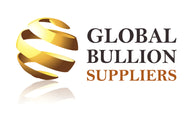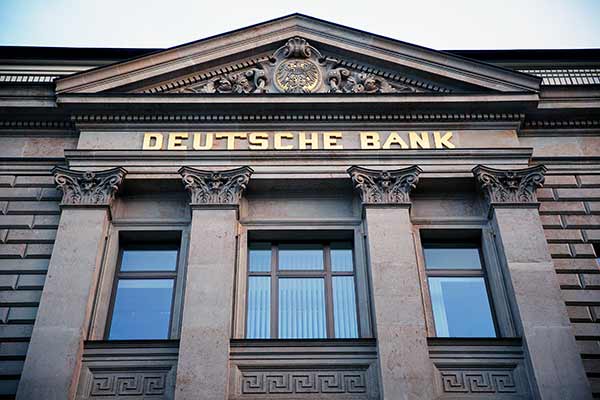If you are a fan of buying 1 oz. silver coins for collection or investment, you have probably wondered whether banks have silver dollars for sale. Because why?
Well, traditionally banks could not sell you these dollars above their face value. In other words, you are buying silver at a fraction of its value. Double the deal if you find rare collectible coins.
While most Canadian and US banks rarely do have silver dollars on hand, you occasionally get lucky. So how do banks have silver dollars and when do they? In our experience it is exclusively when people go and bring these to the bank. The 2009 and 2010 rise of silver made ownership mainstream. Many more people became aware of these coins’ higher value and sold them for it.
Does it help if you’re willing to pay more? Not really when it comes to the bank. Legacy policies prevent most banks from being unable to return these to the Royal Canadian Mint or US Mint. Unfortunately, these deals are rather rare. But read on to understand what banks sell.
Like the Royal Canadian Mint, the big five banks Canadian banks sell gold and silver. These are the Bank of Montreal (BMO), the Canadian Imperial Bank of Commerce (CIBC), the Royal Bank of Canada (RBC), the Bank of Nova Scotia (ScotiaBank), and TD Canada Trust (TD). Each bank has a selection of products sourced from a preferred refiner. Is there a catch? That depends on how comfortable you are paying up to 3-4 x the premium to buy the same metal from a bank.
Book your FREE Bullion Consultation TodayIs Silver Bullion More Affordable at Banks?
There are three significant reasons why investing in silver and gold coins through a bank may not be your best bet. That is to say, it may be wiser to go to a bullion dealer instead.
1. The first reason is price. Banks normally put a much higher premium on bullion they sell. They do so for many reasons such as most banks don’t actually want to sell bullion at competitive rates because they are not built for it. Moreover, they can afford not to be competitive.
At the time of writing, TD Bank has a 1 gram gold bar for sale at CAD 74.95 and a 1 oz silver round for CAD 39.95. At Global Bullion, that is CAD 64.81 and CAD 22.87, respectively. Counting price fluctuations, it is a gross 15% more expensive to buy gold from the bank and some the 45% more for silver. But that hardly reflects the real picture. In fact, the premium at the bank is almost 1.5x what you ought to pay on gold and 20x on silver.
2. The second thing the bank might not tell you is that their people are rarely experts in the field. That is to say, most banks tellers will not have had extensive experience in the market. Even outside of physical precious metals, you would need to talk to someone at their brokerage before they are better acquainted with investment markets.
So why do banks have silver dollars, gold, and silver for sale?
With everything we have said, it might see like most banks do not want to be in the business of selling precious metals. That is not the case, and ScotiaBank’s ScotiaMocatta Precious Metals division is a prime example.
They even have their own cross-branded bar with Valcambi Suisse. Still, the fact that ScotiaBank has a separate division that identifies as a bullion dealer is the exception that proves the rule.
3. Banks rarely want to buy back precious metals, including those they sell. Take for example, CIBC. Their policy is to consider buying back gold and silver when you have the original receipt, the product is pristine, and CIBC sold the product.
Unfortunately, they do not buy back “collector coins,” they “reserve the right to decline the transaction without providing a reason,” and payment usually takes 10 days.
Do banks have silver dollars is really two questions. Can I buy silver under spot and should I buy silver from the bank?
In an earlier article, we talked about different ways how to buy silver at spot. Needless to say this is hard to do. Your best bet is to focus on getting the lowest premium over spot. One catch-22 is that even if you buy legal tender coins from the bank, the bank can refuse to take them back. Strange as it may seem, a Toronto silver collector was put in a very awkward position when two banks refused to honour legal tender.
The coin that the bank refused to cash was a Diamond Jubilee silver coin. The banks elected not to pay him out on grounds that the coins was not technically meant for circulation. So while they could have taken it, according to the Royal Canadian Mint, the banks were not obligated to. Pretty embarrassing mistake for the guy, and pretty unfortunate assumption given he needed money quick.
So technically, Legal tender does not mean money. Leader tender only means it is worth something of similar value. It does not necessarily mean that it must be accepted as actual currency. In other words, accepted at the bank for a debt deposit for or for its value in CAD.
So do banks have silver dollars for sale?
Banks rarely, if ever, will have silver dollars for sale. We are not referring to US Mint Silver Eagle coins with a face value of one dollar. However, even then you may not want to buy or sell at the bank. That is because they charge significantly more than bullion dealers do. Long story short, the days of buying silver at the bank under spot are all but gone. Instead, you are better to focus on getting the lowest possible premiums over spot.

